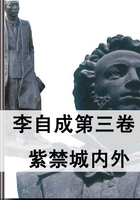1794-1795
Proposal to send Bonaparte to La Vendée-He is struck off the list of general officers-Salicetti-Joseph's marriage with Mademoiselle Clary-Bonaparte's wish to go to Turkey-Note explaining the plan of his proposed expedition-Madame Bourrienne's character of Bonaparte, and account of her husband's arrest-Constitution of the year III- The 13th Vendemiaire-Bonaparte appointed second in command of the army of the interior-Eulogium of Bonaparte by Barras, and its consequences-St. Helena manuscript.
General Bonaparte returned to Paris, where I also arrived from Germany shortly after him. Our intimacy was resumed, and he gave me an account of, all that had passed in the campaign of the south. He frequently alluded to the persecutions he had suffered, and he delivered to me the packet of papers noticed in the last chapter, desiring me to communicate their contents to my friends. He was very anxious, he said, to do away with the supposition that he was capable of betraying his country, and, under the pretence of a mission to Genoa, becoming a SPY on the interests of France. He loved to talk over his military achievements at Toulon and in Italy. He spoke of his first successes with that feeling of pleasure and gratification which they were naturally calculated to excite in him.
The Government wished to send him to La Vendée, with the rank of brigadier-general of infantry. Bonaparte rejected this proposition on two grounds. He thought the scene of action unworthy of his talents, and he regarded his projected removal from the artillery to the infantry as a sort of insult. This last was his most powerful objection, and was the only one he urged officially. In consequence of his refusal to accept the appointment offered him, the Committee of Public Safety decreed that he should be struck off the list of general officers.
-[This statement as to the proposed transfer of Bonaparte to the infantry, his disobedience to the order, and his consequent dismissal, is fiercely attacked in the 'Erreurs', tome i. chap. iv. It is, however, correct in some points; but the real truths about Bonaparte's life at this time seem so little known that it may be well to explain the whole matter. On the 27th of March 1795 Bonaparte, already removed from his employment in the south, was ordered to proceed to the army of the west to command its artillery as brigadier-general. He went as far as Paris, and then lingered there, partly on medical certificate. While in Paris he applied, as Bourrienne says, to go to Turkey to organise its artillery. His application, instead of being neglected, as Bourrienne says, was favourably received, two members of the 'Comite de Saint Public' putting on its margin most favorable reports of him; one, Jean Debry, even saying that he was too distinguished an officer to be sent to a distance at such a time. Far from being looked on as the half-crazy fellow Bourrienne considered him at that time, Bonaparte was appointed, on the 21st of August 1795, one of four generals attached as military advisers to the Committee for the preparation of warlike operations, his own department being a most important one. He himself at the time tells Joseph that he is attached to the topographical bureau of the Comite de Saint Public, for the direction of the armies in the place of Carnot. It is apparently this significant appointment to which Madame Junot, wrongly dating it, alludes as "no great thing" (Junot, vol. i, p. 143). Another officer was therefore substituted for him as commander of Roches artillery, a fact made use of in the Erreurs (p. 31) to deny his having been dismissed-But a general re-classification of the generals was being made. The artillery generals were in excess of their establishment, and Bonaparte, as junior in age, was ordered on 13th June to join Hoche's army at Brest to command a brigade of infantry. All his efforts to get the order cancelled failed, and as he did not obey it he was struck off the list of employed general officers on the 15th of September 1795, the order of the 'Comite de Salut Public' being signed by Cambacérès, Berber, Merlin, and Boissy. His application to go to Turkey still, however, remained; and it is a curious thing that, on the very day he was struck off the list, the commission which had replaced the Minister of War recommended to the 'Comite de Saint Public' that he and his two aides de camp, Junot and Livrat, with other officers, under him, should be sent to Constantinople. So late as the 29th of September, twelve days later, this matter was being considered, the only question being as to any departmental objections to the other officers selected by him, a point which was just being settled. But on the 13th Vendemiaire (5th October 1795), or rather on the night before, only nineteen days after his removal, he was appointed second in command to Barras, a career in France was opened to him, and Turkey was no longer thought of.
Thiers (vol. iv, p. 326) and most writers, contemporary and otherwise, say that Aubry gave the order for his removal from the list. Aubry, himself a brigadier-general of artillery, did not belong to the 'Comite de Salut Public' at the time Bonaparte was removed from the south; and he had left the Comite early is August, that is, before the order striking Bonaparte off was given. Aubry was, however, on the Comite in June 1795, and signed the order, which probably may have originated from him, for the transfer of Bonaparte to the infantry. It will be seen that, in the ordinary military sense of the term, Napoleon was only in Paris without employment from the 15th of September to the 4th or 6th of October 1796; all the rest of the time in Paris he had a command which he did not choose to take up. The distress under which Napoleon is said to have laboured in pecuniary matters was probably shared by most officers at that time; see 'Erreurs', tome i. p. 32. This period is fully described in Iung, tome ii. p. 476, and tome iii. pp. 1-93.]
Deeply mortified at this unexpected stroke, Bonaparte retired into private life, and found himself doomed to an inactivity very uncongenial with his ardent character. He lodged in the Rue du Mail, in an hotel near the Place des Victoires, and we recommenced the sort of life we had led in 1792, before his departure for Corsica. It was not without a struggle that he determined to await patiently the removal of the prejudices which were cherished against him by men in power; and he hoped that, in the perpetual changes which were taking place, those men might be superseded by others more favourable to him. He frequently dined and spent the evening with me and my elder brother; and his pleasant conversation and manners made the hours pass away very agreeably. I called on him almost every morning, and I met at his lodgings several persons who were distinguished at the time; among others Salicetti, with whom he used to maintain very animated conversations, and who would often solicit a private interview with him. On one occasion Salicetti paid him three thousand francs, in assignats, as the price of his carriage, which his straitened circumstances obliged him to dispose of.
-[Of Napoleon's poverty at this time Madame Junot says, "On Bonaparte's return to Paris, after the misfortunes of which he accused Salicetti of being the cause, he was in very destitute circumstances. His family, who were banished from Corsica, found an asylum at Marseilles; and they could not now do for him what they would have done had they been in the country whence they derived their pecuniary resources. From time to time he received remittances of money, and I suspect they came from his excellent brother Joseph, who had then recently married 'Mademoiselle Clary; but with all his economy these supplies were insufficient.
Bonaparte was therefore in absolute distress. Junot often used to speak of the six months they passed together in Paris at this time.
When they took an evening stroll on the Boulevard, which used to be the resort of young men, mounted on fine horses, and displaying all the luxury which they were permitted to show at that time, Bonaparte would declaim against fate, and express his contempt for the dandies with their whiskers and their 'orielles de chiene', who, as they rode Past, were eulogising in ecstasy the manner in which Madame Scio sang. And it is on such beings as these,' he would say, 'that Fortune confers her favours. Grand Dieu! how contemptible is human nature!'" (Memoirs of the Duchesse d'Abrantes, vol. i. p. 80, edit. 1883.)]
I could, easily perceive that our young friend either was or wished to be initiated in some political intrigue; and I moreover suspected that Salicetti had bound him by an oath not to disclose the plans that were hatching.
He became pensive, melancholy, and anxious; and he always looked with impatience for Salicetti's daily visit.
-[Salicetti was implicated in the insurrection of the 20th May 1795, 1st Prairial, Year III., and was obliged to fly to Venice.]
Sometimes, withdrawing his mind from political affairs, he would envy the happiness of his brother Joseph, who had just then married Mademoiselle Clary, the daughter of a rich and respectable merchant of Marseilles. He would often say, "That Joseph is a lucky rogue."
Meanwhile time passed away, and none of his projects succeeded-none of his applications were listened to. He was vexed by the injustice with which he was treated, and tormented by the desire of entering upon some active pursuit. He could not endure the thought of remaining buried in the crowd. He determined to quit France; and the favourite idea, which he never afterwards relinquished, that the East is a fine field for glory, inspired him with the wish to proceed to Constantinople, and to enter the service of the Grand Seignior. What romantic plans, what stupendous projects he conceived! He asked me whether I would go with him? I replied in the negative. I looked upon him as a half-crazy young fellow, who was driven to extravagant enterprises and desperate resolutions by his restless activity of mind, joined to the irritating treatment he had experienced, and, perhaps, it may be added, his want of money. He did not blame me for my refusal to accompany him; and he told me that Junot, Marmont, and some other young officers whom he had known at Toulon, would be willing to follow his fortunes.
He drew up a note which commenced with the words 'Note for …' It was addressed to no one, and was merely a plan. Some days after he wrote out another, which, however, did not differ very materially from the first, and which he addressed to Aubert and Coni. I made him a fair copy of it, and it was regularly for forwarded. It was as follows:
NOTE.
At a moment when the Empress of Russia has strengthened her union with the Emperor of Germany (Austria), it is the interest of France to do everything in her power to increase the military power of Turkey.
That power possesses a numerous and brave militia but is very backward in the scientific part of the art of war.
The organization and the service of the artillery, which, in our modern tactics, so powerfully facilitate the gaining of battles, and on which, almost exclusively, depend the attack and defence of fortresses, are especially the points in which France excels, and in which the Turks are most deficient.
They have several times applied to us for artillery officers, and we have sent them some; but the officers thus sent have not been sufficiently powerful, either in numbers or talent, to produce any important result.
General Bonaparte, who, from his youth, has served in the artillery, of which he was entrusted with the command at the siege of Toulon, and in the two campaigns of Italy, offers his services to proceed to Turkey, with a mission from the (French) Government.
He proposes to take along with him six or seven officers, of different kinds, and who may be, altogether, perfect masters of the military art.
He will have the satisfaction of being useful to his country in this new career, if he succeed in rendering the Turkish power more formidable, by completing the defence of their principal fortresses, and constructing new ones.
This note shows the error of the often-repeated assertion, that he proposed entering the service of the Turks against Austria. He makes no mention of such a thing; and the two countries were not at war.
-[The Scottish biographer makes Bonaparte say that it would be strange if a little Corsican should become King of Jerusalem. I never heard anything drop from him which supports the probability of such a remark, and certainly there is nothing in his note to warrant the inference of his having made it.-Bourrienne.]
No answer was returned to this note. Turkey remained unaided, and Bonaparte unoccupied. I must confess that for the failure of this project, at least I was not sorry. I should have regretted to see a young man of great promise, and one for whom I cherished a sincere friendship, devote himself to so uncertain a fate. Napoleon has less than any man provoked the events which have favoured him; no one has more yielded to circumstances from which he was so skilful to derive advantages. If, however, a clerk of the War Office had but written on the note, "Granted," that little word would probably have changed the fate of Europe.
Bonaparte remained in Paris, forming schemes for the gratification of his ambition, and his desire of making a figure in the world; but obstacles opposed all he attempted.
Women are better judges of character than men. Madame de Bourrienne, knowing the intimacy which subsisted between us, preserved some notes which she made upon Bonaparte, and the circumstances which struck her as most remarkable, during her early connection with him. My wife did not entertain so favourable an opinion of him as I did; the warm friendship I cherished for him probably blinded me to his faults. I subjoin Madame de Bourrienne's notes, word for word:
On the day after our second return from Germany, which was in May 1795, we met Bonaparte in the Palais Royal, near a shop kept by a man named Girardin. Bonaparte embraced Bourrienne as a friend whom he loved and was glad to see. We went that evening to the Theatre Francais. The performance consisted of a tragedy; and 'Le Sourd, ou l'Auberge pleine'. During the latter piece the audience was convulsed with laughter. The part of Dasnieres was represented by Batiste the younger, and it was never played better. The bursts of laughter were so loud and frequent that the actor was several times obliged to stop in the midst of his part. Bonaparte alone (and it struck me as being very extraordinary) was silent, and coldly insensible to the humour which was so irresistibly diverting to everyone else. I remarked at this period that his character was reserved, and frequently gloomy. His smile was hypocritical, and often misplaced; and I recollect that a few days after our return he gave us one of these specimens of savage hilarity which I greatly disliked, and which prepossessed me against him. He was telling us that, being before Toulon, where he commanded the artillery, one of his officers was visited by his wife, to whom he had been but a short time married, and whom he tenderly loved. A few days after, orders were given for another attack upon the town, in which this officer was to be engaged. His wife came to General Bonaparte, and with tears entreated him to dispense with her husband's services that day. The General was inexorable, as he himself told us, with a sort of savage exaltation. The moment for the attack arrived, and the officer, though a very brave man, as Bonaparte himself-assured us, felt a presentiment of his approaching death. He turned pale and trembled. He was stationed beside the General, and during an interval when the firing from the town was very heavy, Bonaparte called out to him, "Take care, there is a shell coming!" The officer, instead of moving to one side, stooped down, and was literally severed in two. Bonaparte laughed loudly while he described the event with horrible minuteness. At this time we saw him almost every day. He frequently came to dine with us. As there was a scarcity of bread, and sometimes only two ounces per head daily were distributed in the section, it was customary to request one's guests to bring their own bread, as it could not be procured for money. Bonaparte and his brother Louis (a mild, agreeable young man, who was the General's aide de army) used to bring with them their ration bread, which was black, and mixed with bran. I was sorry to observe that all this bad bread fell to the share of the poor aide de camp, for we provided the General with a finer kind, which was made clandestinely by a pastrycook, from flour which we contrived to smuggle from Sens, where my husband had some farms. Had we been denounced, the affair might have cost us our heads.
We spent six weeks in Paris, and we went frequently with Bonaparte to the theatres, and to the fine concerts given by Garat in the Rue St. Marc. These were the first brilliant entertainments that took place after the death of Robespierre. There was always something original in Bonaparte's behaviour, for he often slipped away from us without saying a word; and when we were supposing he had left the theatre, we would suddenly discover him in the second or third tier, sitting alone in a box, and looking rather sulky.
Before our departure for Sens, where my husband's family reside, and which was fixed upon for the place of my first accouchement, we looked out for more agreeable apartments than we had in the Rue Grenier St. Lazare, which we only had temporarily. Bonaparte used to assist us in our researches. At last we took the first floor of a handsome new house, No. 19 Rue des Marais. Bonaparte, who wished to stop in Paris, went to look at a house opposite to ours. He had thoughts of taking it for himself, his uncle Fesch (afterwards Cardinal Fesch), and a gentleman named Patrauld, formerly one of his masters at the Military School. One day he said, "With that house over there, my friends in it, and a cabriolet, I shall be the happiest fellow in the world."
We soon after left town for Sens. The house was not taken by him, for other and great affairs were preparing. During the interval between our departure and the fatal day of Vendemiaire several letters passed between him and his school companion. These letters were of the most amiable and affectionate description. They have been stolen. On our return, in November of the same year, everything was changed. The college friend was now a great personage. He had got the command of Paris in return for his share in the events of Vendemiaire. Instead of a small house in the Rue des Marais, he occupied a splendid hotel in the Rue des Capucines; the modest cabriolet was converted into a superb equipage, and the man himself was no longer the same. But the friends of his youth were still received when they made their morning calls. They were invited to grand dejeuners, which were sometimes attended by ladies; and, among others, by the beautiful Madame Tallien and her friend the amiable Madame de Beauharnais, to whom Bonaparte had begun to pay attention. He cared little for his friends, and ceased to address them in the style of familiar equality.
After the 13th of Vendemiaire M. de Bourrienne saw Bonaparte only at distant periods. In the month of February 1796 my husband was arrested, at seven in the morning, by a party of men, armed with muskets, on the charge of being a returned emigrant. He was torn from his wife and his child, only six months old, being barely allowed time to dress himself. I followed him. They conveyed him to the guard-house of the Section, and thence I know not whither; and, finally, in the evening, they placed him in the lockup-house of the prefecture of police, which, I believe, is now called the central bureau. There he passed two nights and a day, among men of the lowest description, some of whom were even malefactors. I and his friends ran about everywhere, trying to find somebody to rescue him, and, among the rest, Bonaparte was applied to. It was with great difficulty he could be seen. Accompanied by one of my husband's friends, I waited for the commandant of Paris until midnight, but he did not come home. Next morning I returned at an early hour, and found him. I stated what had happened to my husband, whose life was then at stake. He appeared to feel very little for the situation of his friend, but, however; determined to write to Merlin, the Minister of Justice. I carried the letter according to its address, and met the Minister as he was coming downstairs, on his way to the Directory. Being in grand costume, he wore a Henri IV. hat, surmounted with a multitude of plumes, a dress which formed a singular contrast with his person. He opened the letter; and whether it was that he cared as little for the General as for the cause of M. de Bourrienne's arrest, he replied that the matter was no longer in his hands, and that it was now under the cognisance of the public administrators of the laws. The Minister then stepped into his carriage, and the writer was conducted to several offices in his hotel. She passed through them with a broken heart, for she met with none but harsh men, who told her that the prisoner deserved death. From them she learned that on the following day he would be brought before the judge of the peace for his Section, who would decide whether there was ground for putting him on his trial. In fact, this proceeding took place next day. He was conveyed to the house of the judge of the peace for the Section of Bondy, Rue Grange-sue-Belles, whose name was Lemaire. His countenance was mild; and though his manner was cold, he had none of the harshness and ferocity common to the Government agents of that time. His examination of the charge was long, and he several times shook his head. The moment of decision had arrived, and everything seemed to indicate that the termination would be to place the prisoner under accusation. At seven o'clock be desired me to be called. I hastened to him, and beheld a most heart rending scene. Bourrienne was suffering under a hemorrhage, which had continued since two o'clock, and had interrupted the examination. The judge of the peace, who looked sad, sat with his head resting on his hand. I threw myself at his feet and implored his clemency. The wife and the two daughters of the judge visited this scene of sorrow, and assisted me in softening him. He was a worthy and feeling man, a good husband and parent, and it was evident that he struggled between compassion and duty. He kept referring to the laws on the subject, and, after long researches said to me, "To-morrow is Decadi, and no proceedings can take place on that day. Find, madams, two responsible persons, who will answer for the appearance of your husband, and I will permit him to go home with you, accompanied by the two guardians." Next day two friends were found, one of whom was M. Desmaisons, counsellor of the court, who became bail for M. de Bourrienne. He continued under these guardians six months, until a law compelled the persons who were inscribed on the fatal list to remove to the distance of ten leagues from Paris. One of the guardians was a man of straw; the other was a knight of St. Louis. The former was left in the antechamber; the latter made, every evening, one of our party at cards. The family of M. de Bourrienne have always felt the warmest gratitude to the judge of the peace and his family. That worthy man saved the life of M. de Bourrienne, who, when he returned from Egypt, and had it in his power to do him some service, hastened to his house; but the good judge was no more!
The letters mentioned in the narrative were at this time stolen from me by the police officers.
Everyone was now eager to pay court to a man who had risen from the crowd in consequence of the part he had acted at an extraordinary crisis, and who was spoken of as the future General of the Army of Italy. It was expected that he would be gratified, as he really was, by the restoration of some letters which contained the expression of his former very modest wishes, called to recollection his unpleasant situation, his limited ambition, his pretended aversion for public employment, and finally exhibited his intimate relations with those who were, without hesitation, characterised as emigrants, to be afterwards made the victims of confiscation and death.
The 13th of Vendemiaire (5th October 1795) was approaching. The National Convention had been painfully delivered of a new constitution, called, from the epoch of its birth, "the Constitution of Year III." It was adopted on the 22d of August 1795. The provident legislators did not forget themselves. They stipulated that two-thirds of their body should form part of the new legislature. The party opposed to the Convention hoped, on the contrary, that, by a general election, a majority would be obtained for its opinion. That opinion was against the continuation of power in the hands of men who had already so greatly abused it.
The same opinion was also entertained by a great part of the most influential Sections of Paris, both as to the possession of property and talent. These Sections declared that, in accepting the new constitution, they rejected the decree of the 30th of August, which required the re-election of two-thirds The Convention, therefore, found itself menaced in what it held most dear-its power;-and accordingly resorted to measures of defence. A declaration was put forth, stating that the Convention, if attacked, would remove to Chalons-sur-Marne; and the commanders of the armed force were called upon to defend that body.
The 5th of October, the day on which the Sections of Paris attacked the Convention, is certainly one which ought to be marked in the wonderful destiny of Bonaparte.
With the events of that day were linked, as cause and effect, many great political convulsions of Europe. The blood which flowed ripened the seeds of the youthful General's ambition. It must be admitted that the history of past ages presents few periods full of such extraordinary events as the years included between 1795 and 1815. The man whose name serves, in some measure, as a recapitulation of all these great events was entitled to believe himself immortal.
Living retired at Sens since the month of July, I only learned what had occasioned the insurrection of the Sections from public report and the journals. I cannot, therefore, say what part Bonaparte may have taken in the intrigues which preceded that day. He was officially characterised only as secondary actor in the scene. The account of the affair which was published announces that Barras was, on that very day, Commander-in-chief of the Army of the Interior, and Bonaparte second in command. Bonaparte drew up that account. The whole of the manuscript was in his handwriting, and it exhibits all the peculiarity of his style and orthography. He sent me a copy.
Those who read the bulletin of the 13th Vendemiaire, cannot fail to observe the care which Bonaparte took to cast the reproach of shedding the first blood on the men he calls rebels. He made a great point of representing his adversaries as the aggressors. It is certain he long regretted that day. He often told me that he would give years of his life to blot it out from the page of his history. He was convinced that the people of Paris were dreadfully irritated against him, and he would have been glad if Barras had never made that Speech in the Convention, with the part of which, complimentary to himself, he was at the time so well pleased. Barras said, "It is to his able and prompt dispositions that we are indebted for the defence of this assembly, around which he had posted the troops with so much skill." This is perfectly true, but it is not always agreeable that every truth should be told. Being out of Paris, and a total stranger to this affair, I know not how far he was indebted for his success to chance, or to his own exertions, in the part assigned to him by the miserable Government which then oppressed France. He represented himself only as secondary actor in this sanguinary scene in which Barras made him his associate. He sent to me, as already mentioned, an account of the transaction, written entirely in his own hand, and distinguished by all the peculiarities of his style and orthography.
-[Joseph Bonaparte, in a note on this peerage, insinuates that the account of the 13th Vendemiaire was never sent to Sens, but was abstracted by Bourrienne, with other documents, from Napoleon's Cabinet (Erreurs, tome i. p. 239).]
"On the 13th," says Bonaparte, "at five o'clock in the morning, the representative of the people, Barras, was appointed Commander-in-chief of the Army of the Interior, and General Bonaparte was nominated second in command.
"The artillery for service on the frontier was still at the camp of Sablons, guarded solely by 150 men; the remainder was at Marly with 200 men. The depot of Meudon was left unprotected. There were at the Feuillans only a few four-pounders without artillerymen, and but 80,000 cartridges. The victualling depots were dispersed throughout Paris. In many Sections the drums beat to arms; the Section of the Theatre Francais had advanced posts even as far as the Pont Neuf, which it had barricaded.
"General Barras ordered the artillery to move immediately from the camp of Sablons to the Tuileries, and selected the artillerymen from the battalions of the 89th regiment, and from the gendarmerie, and placed them at the Palace; sent to Meudon 200 men of the police legion whom he brought from Versailles, 50 cavalry, and two companies of veterans; he ordered the property which was at Marly to be conveyed to Meudon; caused cartridges to be brought there, and established a workshop at that place for the manufacture of more. He secured means for the subsistence of the army and of the Convention for many days, independently of the depots which were in the Sections.
"General Verdier, who commanded at the Palais National, exhibited great coolness; he was required not to suffer a shot to be fired till the last extremity. In the meantime reports reached him from all quarters acquainting him that the Sections were assembled in arms, and had formed their columns. He accordingly arrayed his troops so as to defend the Convention, and his artillery was in readiness to repulse the rebels. His cannon was planted at the Feuillans to fire down the Rue Honore. Eight-pounders were pointed at every opening, and in the event of any mishap, General Verdier had cannon in reserve to fire in flank upon the column which should have forced a passage. He left in the Carrousel three howitzers (eight-pounders) to batter down the houses from which the Convention might be fired upon. At four o'clock the rebel columns marched out from every street to unite their forces. It was necessary to take advantage of this critical moment to attack the insurgents, even had they been regular troops. But the blood about to flow was French; it was therefore for these misguided people, already guilty of rebellion, to embrue their hands in the blood of their countrymen by striking the first blow.
"At a quarter before five o'clock the insurgents had formed. The attack was commenced by them on all sides. They were everywhere routed. French blood was spilled: the crime, as well as the disgrace, fell this day upon the Sections.
"Among the dead were everywhere to be recognized emigrants, landowners, and nobles; the prisoners consisted for the most part of the 'chouans' of Charette.
"Nevertheless the Sections did not consider themselves beaten: they took refuge in the church of St. Roch, in the theatre of the Republic, and in the Palais Egalite; and everywhere they were heard furiously exciting the inhabitants to arms. To spare the blood which would have been shed the next day it was necessary that no time should be given them to rally, but to follow them with vigour, though without incurring fresh hazards. The General ordered Montchoisy, who commanded a reserve at the Place de la Resolution, to form a column with two twelve-pounders, to march by the Boulevard in order to turn the Place Vendome, to form a junction with the picket stationed at headquarters, and to return in the same order of column.
"General Brune, with two howitzers, deployed in the streets of St. Nicaise and St. Honore. General Cartaux sent two hundred men and a four-pounder of his division by the Rue St. Thomas-du-Louvre to debouch in the square of the Palais Egalite. General Bonaparte, who had his horse killed under him, repaired to the Feuillans.
"The columns began to move, St. Roch and the theatre of the Republic were taken, by assault, when the rebels abandoned them, and retreated to the upper part of the Rue de la Loi, and barricaded themselves on all sides. Patrols were sent thither, and several cannon-shots were fired during the night, in order to prevent them from throwing up defences, which object was effectually accomplished.
"At daybreak, the General having learned that some students from the St. Genevieve side of the river were marching with two pieces of cannon to succour the rebels, sent a detachment of dragoons in pursuit of them, who seized the cannon and conducted them to the Tuileries. The enfeebled Sections, however, still showed a front. They had barricaded the Section of Grenelle, and placed their cannon in the principal streets. At nine o'clock General Beruyer hastened to form his division in battle array in the Place Vendome, marched with two eight-pounders to the Rue des Vieux-Augustins, and pointed them in the direction of the Section Le Pelletier. General Vachet, with a corps of 'tirailleurs', marched on his right, ready to advance to the Place Victoire. General Brune marched to the Perron, and planted two howitzers at the upper end of the Rue Vivienne. General Duvigier, with his column of six hundred men, and two twelve-pounders, advanced to the streets of St. Roch and Montmartre. The Sections lost courage with the apprehension of seeing their retreat cut off, and evacuated the post at the sight of our soldiers, forgetting the honour of the French name which they had to support. The Section of Brutus still caused some uneasiness. The wife of a representative had been arrested there. General Duvigier was ordered to proceed along the Boulevard as far as the Rue Poissonniere. General Beruyer took up a position at the Place Victoire, and General Bonaparte occupied the Pont-au-Change.
"The Section of Brutus was surrounded, and the troops advanced upon the Place de Greve, where the crowd poured in from the Isle St. Louis, from the Theatre Francais, and from the Palace. Everywhere the patriots had regained their courage, while the poniards of the emigrants, armed against us, had disappeared. The people universally admitted their error.
"The next day the two Sections of Les Pelletier and the Theatre Francais were disarmed."
The result of this petty civil war brought Bonaparte forward; but the party he defeated at that period never pardoned him for the past, and that which he supported dreaded him in the future. Five years after he will be found reviving the principles which he combated on the 5th of October 1795. On being appointed, on the motion of Barras, Lieutenant-General of the Army of the Interior, he established his headquarters in the Rue Neuve des Capucines. The statement in the 'Manuscrit de Sainte Helene', that after the 13th Brumaire he remained unemployed at Paris, is therefore obviously erroneous. So far from this, he was incessantly occupied with the policy of the nation, and with his own fortunes. Bonaparte was in constant, almost daily, communication with every one then in power, and knew how to profit by all he saw or heard.
To avoid returning to this 'Manuscrit de Sainte Helene', which at the period of its appearance attracted more attention than it deserved, and which was very generally attributed to Bonaparte, I shall here say a few words respecting it. I shall briefly repeat what I said in a note when my opinion was asked, under high authority, by a minister of Louis XVIII.
No reader intimately acquainted with public affairs can be deceived by the pretended authenticity of this pamphlet. What does it contain? Facts perverted and heaped together without method, and related in an obscure, affected, and ridiculously sententious style. Besides what appears in it, but which is badly placed there, it is impossible not to remark the omission of what should necessarily be there, were Napoleon the author. It is full of absurd and of insignificant gossip, of thoughts Napoleon never had, expressions unknown to him, and affectations far removed from his character. With some elevated ideas, more than one style and an equivocal spirit can be seen in it. Professed coincidences are put close to unpardonable anachronisms, and to the most absurd revelations. It contains neither his thoughts, his style, his actions, nor his life. Some truths are mimed up with an inconceivable mass of falsehoods. Some forms of expression used by Bonaparte are occasionally met with, but they are awkwardly introduced, and often with bad taste.
It has been reported that the pamphlet was written by M. Bertrand, formerly an officer of the army of the Vistula, and a relation of the Comte de Simeon, peer of France.
-['Manuscrit de Sainte Helene d'une maniere inconnue', London. Murray; Bruxelles, De Mat, 20 Avril 1817. This work merits a note. Metternich (vol, i. pp. 312-13) says, "At the time when it appeared the manuscript of St. Helena made a great impression upon Europe.
This pamphlet was generally regarded as a precursor of the memoirs which Napoleon was thought to be writing in his place of exile. The report soon spread that the work was conceived and executed by Madame de Stael. Madame de Stael, for her part, attributed it to Benjamin Constant, from whom she was at this time separated by some disagreement." Afterwards it came to be known that the author was the Marquis Lullin de Chateauvieux, a man in society, whom no one had suspected of being able to hold a pen: Jomini (tome i. p. 8 note) says. "It will be remarked that in the course of this work [his life of Napoleon] the author has used some fifty pages of the pretended 'Manuscrit de Sainte Helene'. Far from wishing to commit a plagiarism, he considers he ought to render this homage to a clever and original work, several false points of view in which, however, he has combated. It would have been easy for him to rewrite these pages in other terms, but they appeared to him to be so well suited to the character of Napoleon that he has preferred to preserve them." In the will of Napoleon occurs (see end of this work): "I disavow the 'Manuscrit de Sainte Helene', and the other works under the title of Maxims, Sentences, etc., which they have been pleased to publish during the last six years. Such rules are not those which have guided my life: This manuscript must not be confused with the 'Memorial of Saint Helena'.]















